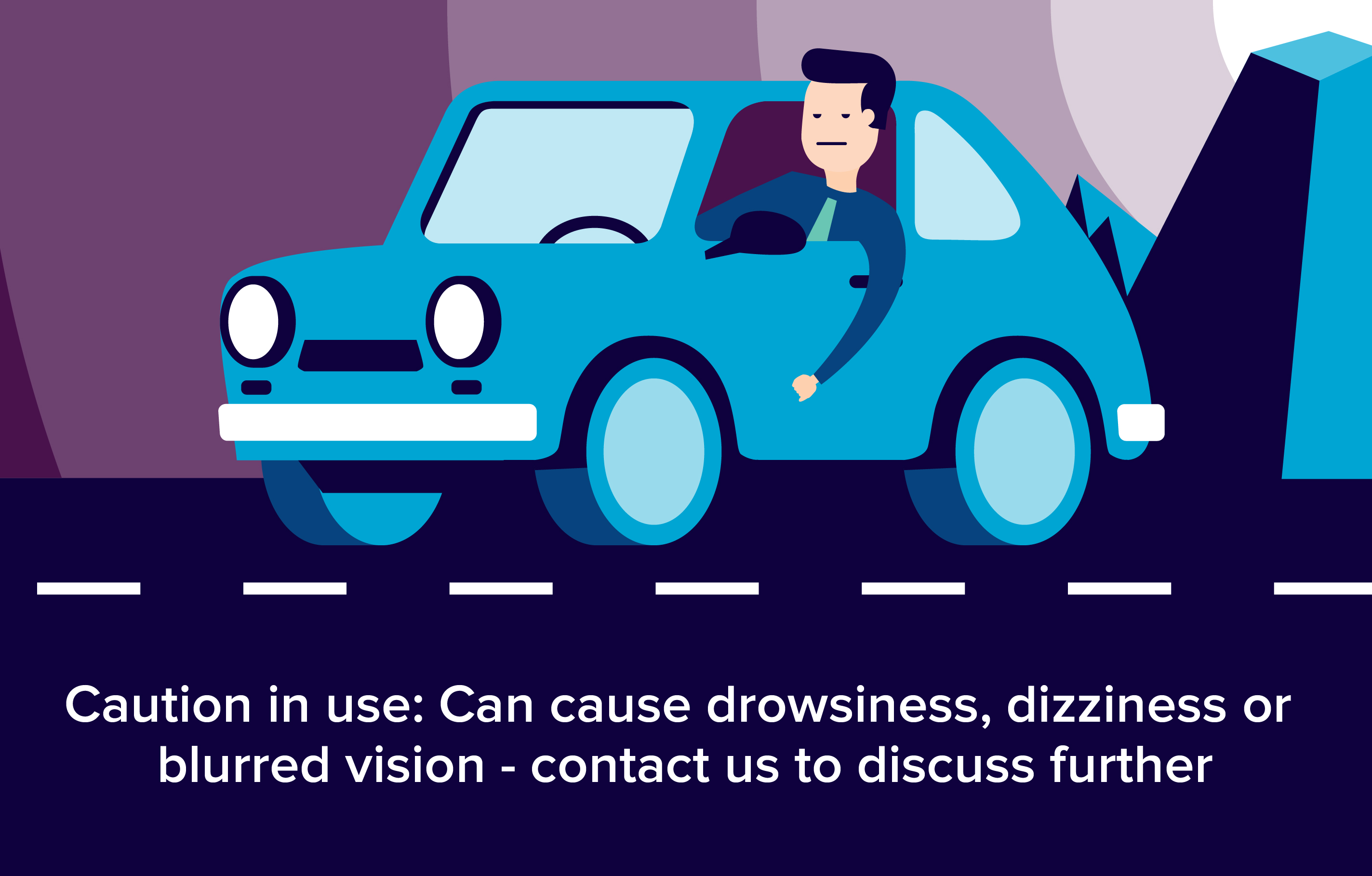Dexamethasone can be used to reduce inflammation or treat a number of diseases of the immune system.

Why have I been prescribed Dexamethasone?
Dexamethasone can be used to reduce inflammation or treat a number of diseases of the immune system. Including:
- Rheumatism (pain, stiffness or limitation of motion in the joints, muscles and tendons)
- Inflammations including inflammation of the joints and tissue around the joint (rheumatoid arthritis) and inflammation of the skin (contact dermatitis)
- Hypersensitivity reactions (allergic reactions) to other drugs or insect stings
- Anaphylactic shock (severe sudden allergic reaction)
- Asthma
How does it work?
- Dexamethasone tablets belong to a group of medicines called steroids. Their full name is corticosteroids. These corticosteroids occur naturally in the body, and help to maintain health and well-being. Boosting your body with extra corticosteroid (such as Dexamethasone tablets) is an effective way to treat various illnesses involving inflammation in the body. Dexamethasone tablets reduce this inflammation, which could otherwise go on making your condition worse. You must take this medicine regularly to get maximum benefit from it.
When and how do I take it?
Swallow the tablets with some water. Take the tablets at about the same time each day, preferably in the morning.
What’s the dose?
The dosage depends on the severity of your condition and your response. The usual dosage in adults is 0.5-10 mg per day. When you get better the dosage is gradually decreased, preferably to one morning dose on alternate days.
Could it interact with other tablets?
- Some medicines can diminish the effect of Dexamethasone, e.g. medicines to treat epilepsy (phenobarbitone, phenytoin, primidone and carbamazepine), medicines to treat tuberculosis (rifampin, rifabutin) and medicines to treat certain cancers (aminoglutethimide).
- The desired effect of antidiabetic medicines (to control blood sugar levels; including insulin), medicines to control blood pressure and diuretics (to stimulate urination) may be diminished by Dexamethasone.
- The effect of some medicines that are used to treat myasthenia gravis (anticholinesterases) can be diminished by Dexamethasone.
- The use of certain diuretics (potassium-depleting diuretics) during therapy with Dexamethasone may result in hypokalaemia (a shortage of potassium).
- The effect of certain anticoagulants (coumarines; to prevent blood clots) may be altered during therapy with Dexamethasone.
- The clearance of salicylates is increased during therapy with Dexamethasone. Therefore, if you stop using Dexamethasone, the dosage of salicylates should be
- lowered to prevent intoxication.
- Combination of corticosteroids with ulcer-inducing agents (e.g. painkillers like acetylsalicylic acid, ibuprofen) enhances the risk of peptic ulceration.
Herbal products should also only be taken after talking with your doctor.
What are the possible risks or side-effects?
Like all medicines, Dexamethasone can have side effects.
On short-term treatment sometimes:
- gastrointestinal complaints, such as an upset or swollen stomach
- hypersensitivity reactions (allergic reactions) e.g. rash, itch and difficulty in breathing
On long-term treatment:
- filling or rounding of the face, neck and body
- irregular periods or complete absence of periods
- abnormal hair growth
- weight gain
- increased appetite
- in diabetics: the need for more insulin or antidiabetic tablets
- increased chance of picking up infections or mild infections getting worse e.g. chickenpox; being less protected after inoculation; having a decreased response to skin test; recurrence of dormant tuberculosis (TB)
- brittle bones (osteoporosis)
- muscle weakness
- fluid retention in the tissues, usually marked by swelling of ankles or feet
- high blood pressure
- potassium loss
- changes of mood (nervousness, depression, euphoria, psychological dependence and schizophrenia)
- sleeplessness
- aggravation of epilepsy
- certain eye diseases (increased pressure in the eye, glaucoma, papiloedema, cataracts, thinning of the cornea or sclera and worsening of a viral or fungal eye disease)
- abdominal or stomach pain
- candidiasis (thrush)
- slower healing of wounds
- easy bruising; skin problems
- in children: delayed or stunted growth and increased intracranial pressure (pseudo tumor cerebri)
- an increase in the amount of white blood cells in your blood
- a blood clot in your vessels
- In elderly: symptoms of diabetes (unusual thirst, frequent urination); loss of bone tissue with symptoms such as low back pain, loss of stature and fractures.
If you notice any side effects not mentioned in this leaflet, please inform your doctor or pharmacist.
Can I drink alcohol while taking it?
- There are no known interactions between alcohol and Dexamethasone.
- Always ask you doctor or pharmacist however as other medications you are taking may have a bearing on this.
What if I’m pregnant/breastfeeding?
You should only take this medicine during pregnancy or while breast feeding if your doctor thinks that you need it.
If you have any more questions please ask your Pharmacist.
Remember to keep all medicines out of reach of children
Please Note: We have made every effort to ensure that the content of this information sheet is correct at time of publish, but remember that information about drugs may change. This sheet does not list all the uses and side-effects associated with this drug. For full details please see the drug information leaflet which comes with your medicine. Your doctor will assess your medical circumstances and draw your attention to any information or side-effects which may be relevant in your particular case.
References:
http://www.medicinenet.com/dexamethasone-decadron-dexpak/article.htm
http://www.drugs.com/dexamethasone.html
https://www.nlm.nih.gov/medlineplus/druginfo/meds/a682792.html
https://en.wikipedia.org/wiki/Dexamethasone

